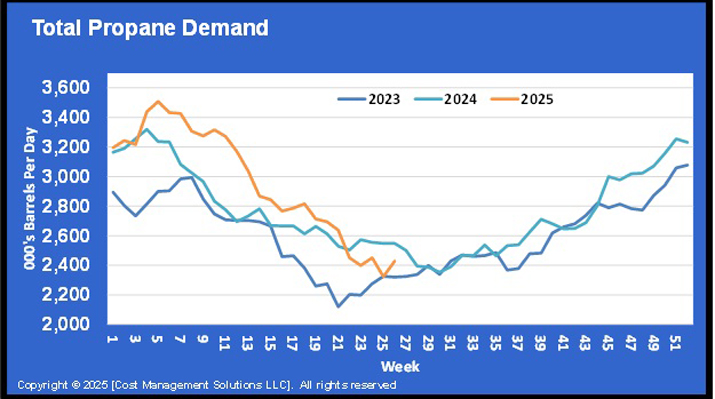Propane Days’ discussion topics
After poring over my notes from the Propane Days lobbying event and the National Propane Gas Association’s (NPGA) mid-year board of directors meeting, here are four observations from the nation’s capital:
There are two sides to hours-of-service exemptions: While the Federal Motor Carrier Safety Administration has responded favorably to the industry’s need to transport propane during high-demand periods, granting timely regional waivers last winter, some in the industry recognize a downside to these driver exemptions. Complacency is the concern – that retailers will begin to rely on the exemptions instead of creating a comprehensive supply plan and building stronger relationships with suppliers. “The fear is how many marketers are using hours of service as their planning tool,” says Dave Biggs of the United Propane AutoGas Solutions Group. “We can’t rely on that. If we keep doing that, it’s going to be a black eye for our industry.”
Key issues play out in the states: Propane industry leaders recognize a greater need to address the issues taking place in your backyard – at the state and regional levels. NPGA already tracks bills to identify threats at the state level, but it’s also adopting a regional model in the face of limited resources to identify state issues, such as the “electrify everything” movement, cap-and-trade programs and carbon taxes. “We’re putting our state engagement plan on steroids,” says NPGA President and CEO Rick Roldan. At the Propane Education & Research Council, President and CEO Tucker Perkins says there’s a total commitment to regionalization – recognizing and reacting to what’s happening in pockets around the country. For some regions, particularly in California, the focus is on emissions and environmental issues; for others, it’s about economics. Industry dynamics change significantly depending on retailers’ geographic locations. What are the issues hampering your business? Send us an email and we’ll create a list for the industry.
It’s time to get moving on the youth movement: The propane industry recognizes that it must do a better job of attracting younger employees. To that end, it must improve its image by changing how it markets itself to this younger workforce. A team of industry leaders has been tasked with the project – not an easy assignment, especially when other industries are vying for the same candidates. The goal is to position propane companies to better recruit, onboard, train and retain employees. Some of the first steps involve data collection on the industry and engaging with workforce boards, trade schools and colleges, and veterans. “This is a really large project, but we have the right teams in place,” says NPGA’s Eric Kuster.
Regulatory rollback is part of the current political climate: This catchy term was used several times in Washington, D.C., with a clear message: The current administration seems willing to work with industries to lift burdens and open pathways to more business opportunities. Expanding the Department of Transportation’s air-mile radius component of the short-haul exemption – from 100 to 300 air miles – has moved atop NPGA’s agenda, Roldan says. The current exemption defines short hauls as drivers operating within a 100 air-mile radius of the normal working location where the driver returns at the end of the workday. Making this modification could save the industry millions of dollars, as well as time completing and maintaining record-of-duty status reports, the association says.
Check out more of the industry’s current concerns, including one regulatory burden that’s been tough to overcome, in our Propane Days coverage.
















